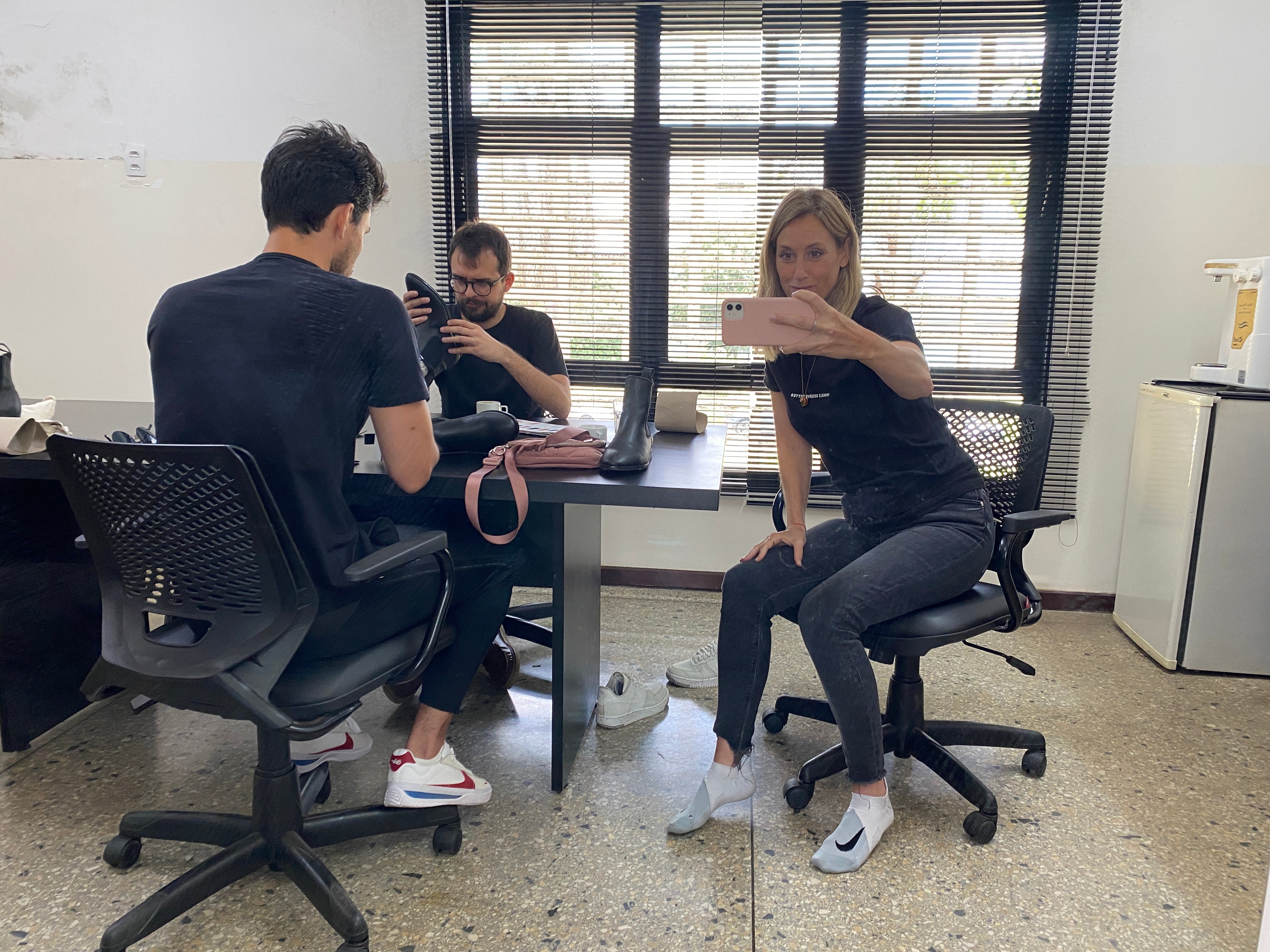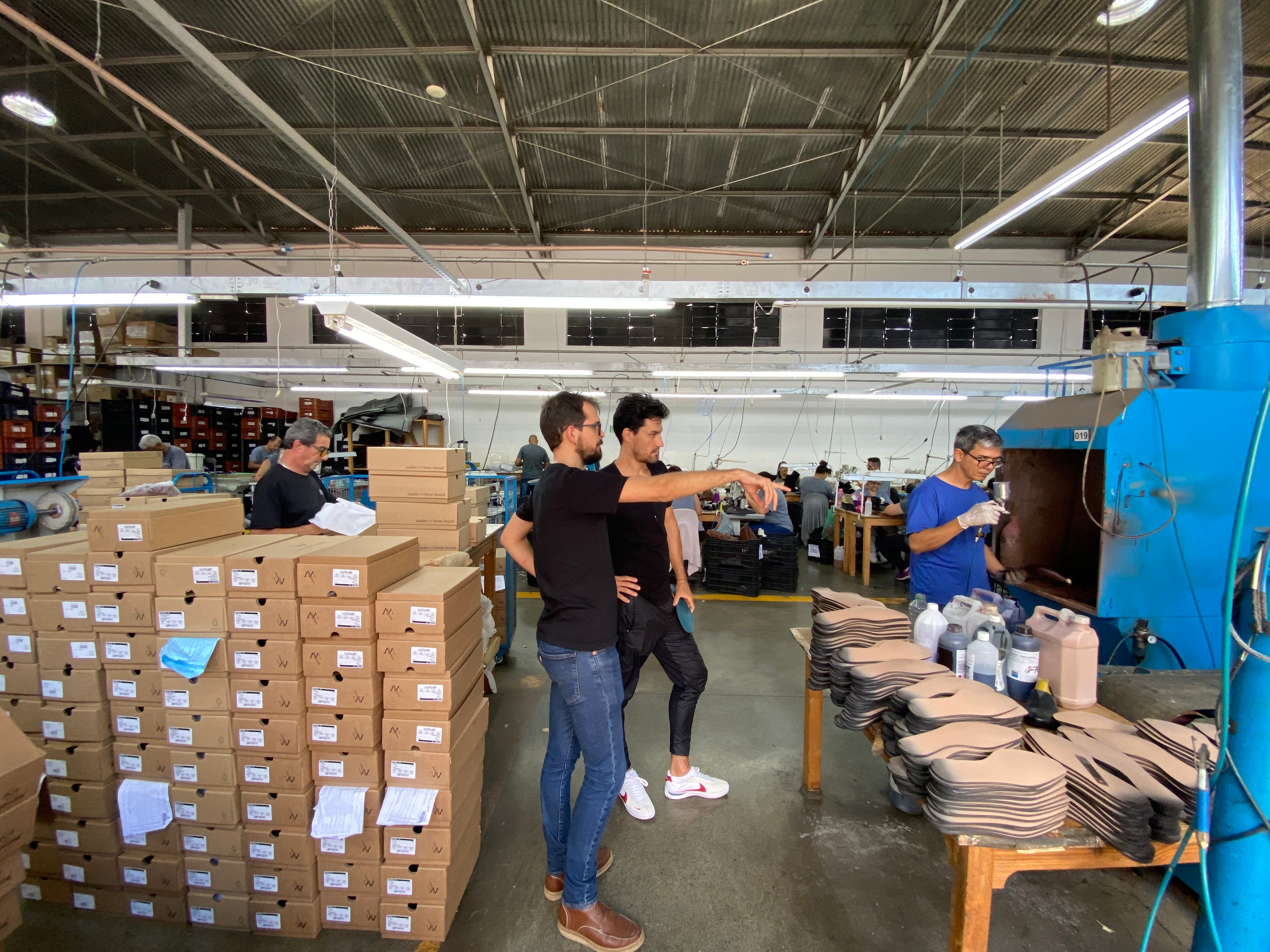Exploring the World of Vegan Leather: Polyurethane
As society continues to evolve and embrace more sustainable alternatives, vegan leather has emerged as a popular choice for conscious consumers. One particular type of vegan leather that has gained significant attention is polyurethane (PU) leather. This innovative material offers a promising solution to the ethical and environmental concerns associated with traditional animal-based leather. Let's dive deeper into the world of vegan leather and understand why polyurethane is making waves.
🍃 What is Polyurethane Vegan Leather? 🍃
Polyurethane vegan leather, commonly known as PU vegan leather, is a synthetic material that replicates the look and feel of genuine leather. It is composed of a base fabric, usually polyester or nylon, which is coated with a layer of polyurethane. This coating gives the material its characteristic leather-like texture and appearance. PU vegan leather can mimic the grain, texture, and color variations of real leather, offering a cruelty-free alternative that appeals to vegans and environmentally conscious individuals.
🌿 The Benefits of Polyurethane Vegan Leather 🌿
-
Cruelty-Free: Perhaps the most compelling aspect of polyurethane vegan leather is its cruelty-free nature. Unlike traditional leather, which is derived from animal hides, PU leather is entirely synthetic and similar to leather. By opting for vegan leather, consumers can enjoy the aesthetic and tactile qualities of leather without supporting the use of animal products.
-
Environmental Impact: Polyurethane vegan leather has a significantly smaller ecological footprint compared to traditional leather. The production of genuine leather involves various environmentally harmful processes, such as deforestation, water pollution, and the release of greenhouse gases. In contrast, PU leather production consumes fewer resources and emits fewer pollutants, making it a more sustainable choice.
-
Versatility: Polyurethane vegan leather offers versatility in design and application. It can be easily manipulated to create a wide range of textures, finishes, and colors, providing endless possibilities for fashion, furniture, and automotive industries. Moreover, PU leather is more resistant to wear and tear, making it a durable choice for various products.
-
Lower Cost: Vegan leather, including polyurethane, tends to be more affordable compared to genuine leather. The lower production costs and the absence of animal sourcing contribute to the lower price point, allowing consumers to make ethical choices without breaking the bank.
-
Easy Maintenance: PU vegan leather is relatively low-maintenance and can be easily cleaned with a damp cloth. Unlike genuine leather, it is less prone to cracking, fading, or absorbing liquids, making it a practical option for everyday use.
🌱 Considerations and Challenges 🌱
While polyurethane vegan leather presents numerous advantages, it is essential to acknowledge some considerations and challenges:
-
Durability: Although PU vegan leather is generally more durable than genuine leather, it may not possess the same longevity. The lifespan of PU leather products can vary, depending on the quality and usage. Investing in high-quality PU leather goods can ensure better durability.
-
Environmental Impact: While PU leather has a smaller environmental footprint compared to genuine leather, it is still a synthetic material derived from petrochemicals. The production and disposal of polyurethane raise concerns about non-renewable resources and waste management. However, advancements are being made to create more eco-friendly alternatives, such as water-based PU coatings and bio-based polyurethane.
-
Transparency: As with any industry, transparency and responsible sourcing are crucial. Some manufacturers may use harmful chemicals during the production process, which can be detrimental to the environment and human health. It is essential to support brands that prioritize ethical and sustainable practices.
🌿 Embracing Sustainable Alternatives 🌿
Polyurethane vegan leather offers an exciting avenue for conscious consumers seeking cruelty-free and sustainable options that are similar to leather.
That being said, there are some important concerns about PU vegan leather which we will explore in our next post here:
https://voesandcompany.com/blogs/news/the-problem-with-pu-material-vegan-faux-leather-and-vegan-leather-polyurethane
At Voes & Co we're seeking to work with more plant-based material made primarily from plants - such as leather made of cactus - and less PU Polyurethane vegan leather for our non leather vegan shoes (our non leather black vegan chelsea boots) to address the problem of plastic and petroleum in vegan synthetic PU material and create products that are healthier for the environment.
This is why we have chosen to make our boots with vegan plant based Cactus Leather from Desserto, which in our opinion is the best leather alternative which is similar to leather but ethically and sustainably made. You can learn more about Cactus Leather here:
https://voesandcompany.com/blogs/news/desserto-cactus-leather-the-sustainable-alternative-with-a-remarkable-resemblance-to-leather


